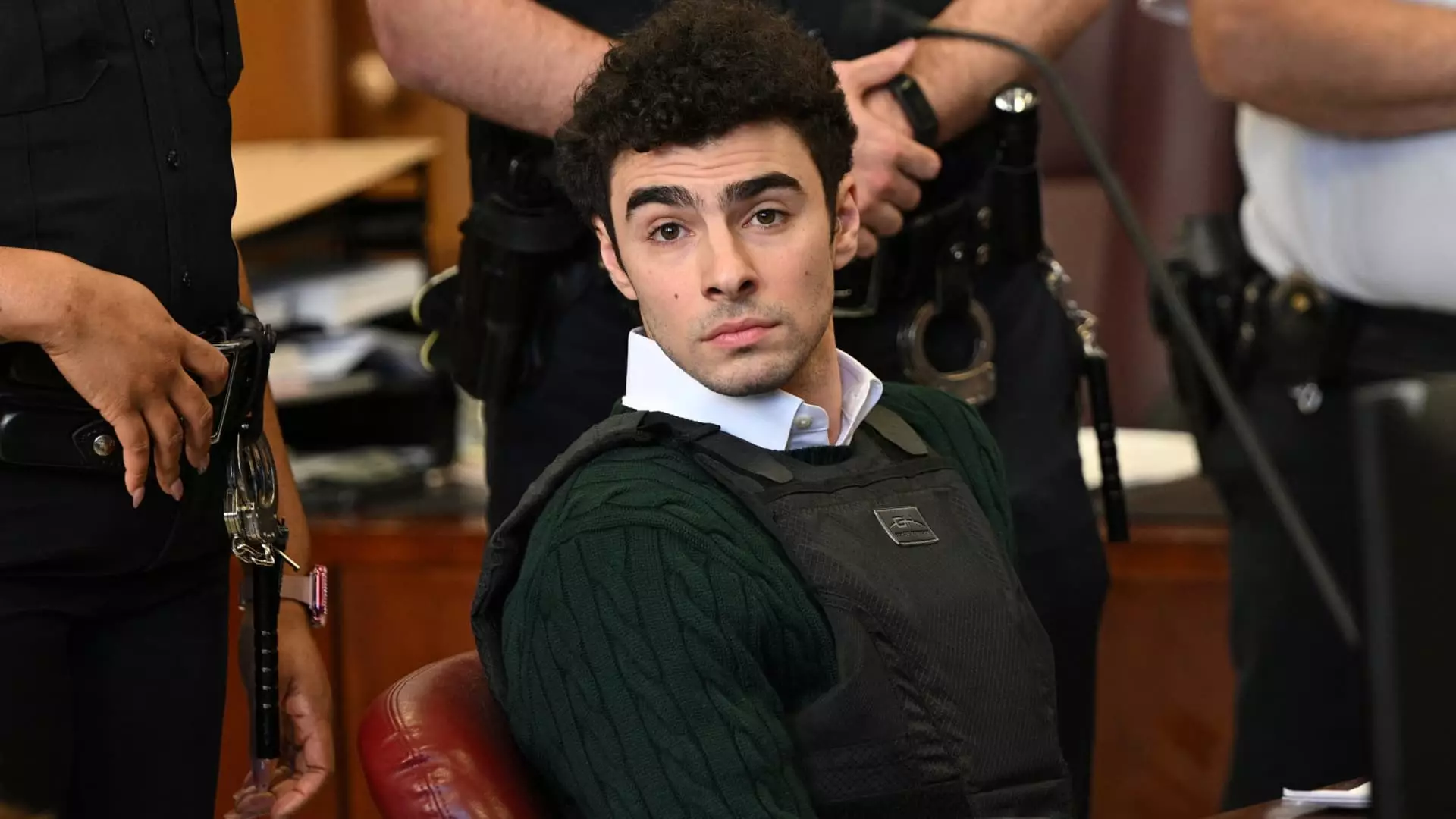The murder of UnitedHealthcare CEO Brian Thompson is not merely another entry in the grim annals of crime; it stands as a harsh reminder of the dark undercurrents that can motivate individuals toward extreme violence. Thompson was shot dead as he arrived for an investor event at the Hilton Hotel in Midtown Manhattan on December 4. The loss of a father of two and a prominent leader in the healthcare industry resonates beyond the immediate tragedy, revealing a broader, dangerous narrative about ideology and violence. It amplifies concerns about the intersection of personal grievances with societal concerns, which can lead otherwise rational individuals to commit heinously irrational acts.
The accused, 26-year-old Luigi Mangione, has pleaded not guilty and faces a slew of charges, including murder and use of a firearm during a crime. However, the most alarming aspect of this case isn’t just the brutal act itself but the prosecution’s assertion that Mangione’s actions were not random outbursts of anger, but rather part of a premeditated scheme to send an ideological message. Prosecutors allege Mangione intentionally targeted Thompson to provoke public opposition against the health insurance industry, indicating a troubling trend in which individuals harness violence to express ideological discontent.
Ideological Motivation or Premeditated Malice?
The Justice Department’s announcement that it seeks the death penalty illustrates the shocking nature of this case. U.S. Attorney General Pam Bondi characterized Thompson’s murder as a “premeditated, cold-blooded assassination.” This statement raises crucial questions about the motivations buried within ideological violence. Is this simply another instance of a lone wolf acting out against his perceived adversaries, or does it imply a more dangerous narrative that undercuts social discourse?
What compounds the horror is the notion that Mangione’s intent could be far broader than an act of individual rage. The implications of using violence as a means to amplify an ideology are not just dangerous; they are intoxicating for susceptible minds grappling with societal grievances. The way Mangione allegedly executed his plan speaks volumes about the moral failings that can accompany ideological fervor, illustrating how deeply misguided beliefs can spiral into acts of striking brutality.
The Role of the Justice System in Addressing Ideological Violence
The legal proceedings surrounding Mangione are evolving rapidly, with his defense team already contending that public statements made by Attorney General Bondi could bias the jury pool. They argue that these premature proclamations pose a threat to Mangione’s right to a fair trial, echoing the necessity of maintaining judicial integrity. This conflict of interest indicates another layer of complexity in addressing cases involving ideological violence. Courts must become vigilant not just against direct acts of violence but also against the auxiliary narratives that can cloud a trial’s fairness.
Judge Margaret Garnett’s warning to both the prosecution and defense about refraining from public commentary highlights the gravity of the situation. It underscores the delicate balance that must be maintained between ensuring justice for the victim while also upholding the legal rights of the accused. As society grapples with growing sentiments of anger toward various industries, including healthcare, it must vigilantly safeguard against glorifying or legitimizing these dangerous ideologies that can lead to violence.
The Societal Implications of Radicalization
Perhaps the most pressing concern in the wake of Thompson’s murder is how radicalization often festers in silence, unacknowledged until it culminates in horrific acts. Mangione’s supposed motivations cast a shadow over a brutally divided political landscape, one where the rhetoric of discontent often spirals into tangible, violent outcomes. The national discourse surrounding healthcare, economic disparity, and systemic injustice requires thoughtful engagement, rather than the kind of incendiary rhetoric that instigates violence and further divides us.
If there’s anything to take from this grim tragedy, it is strongly persuasive: society must confront the dangers of ideological violence head-on. As we seek solutions that reconcile our differences, we must also be wary of the pitfalls of radical ideologies and the dire consequences they can produce. The fight against injustice should empower dialogue, not deadly action. Through meaningful engagement, reform, and empathy, we can transform such tragedies into catalysts for healing rather than violence.


Leave a Reply